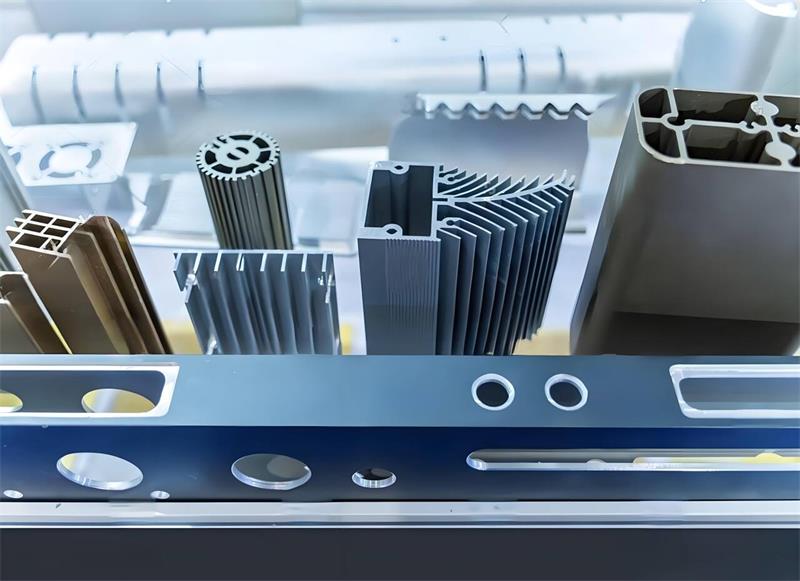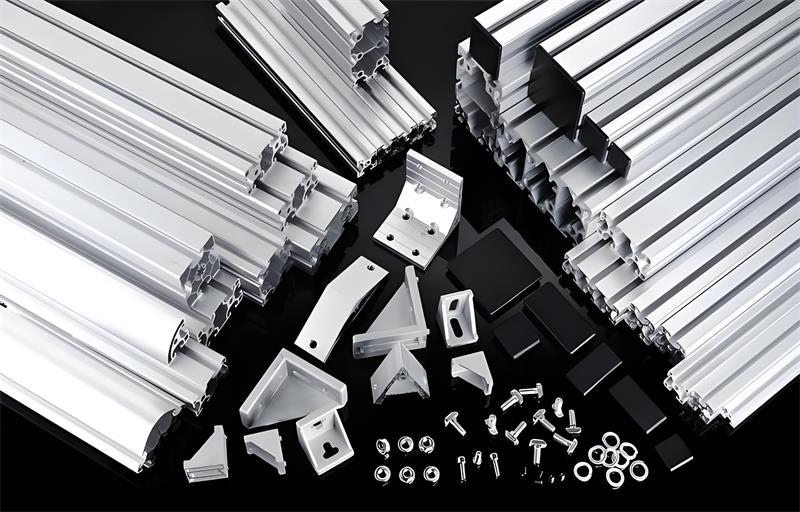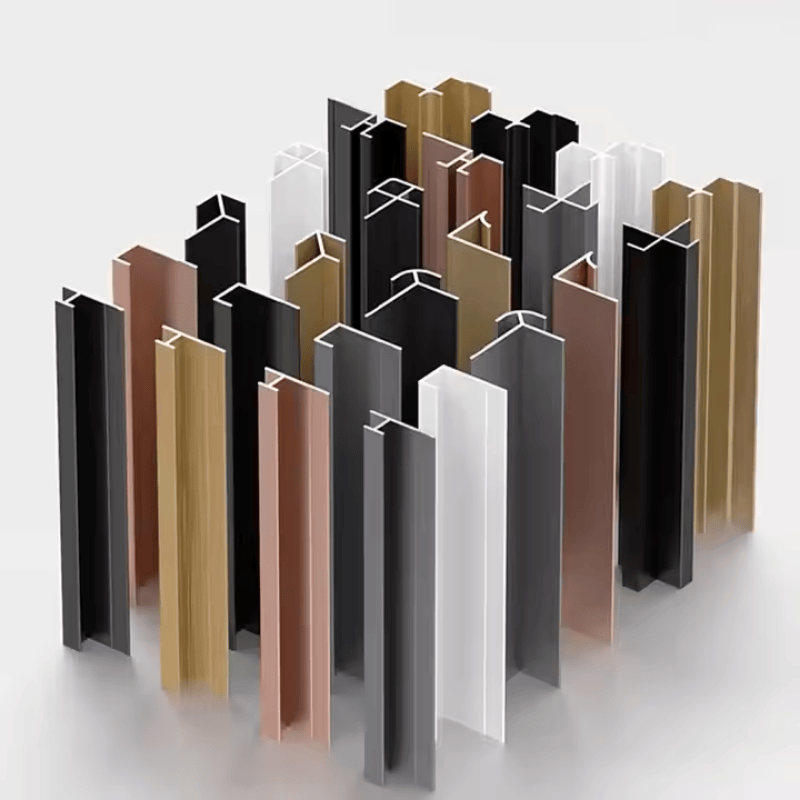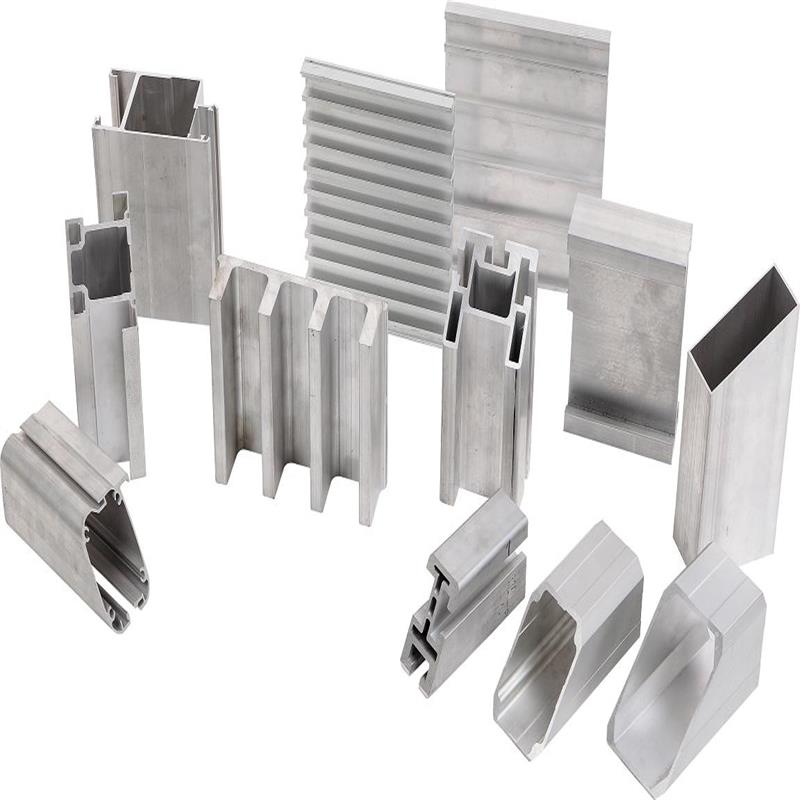Discover the Best Aluminum Alloy Windows on the Market
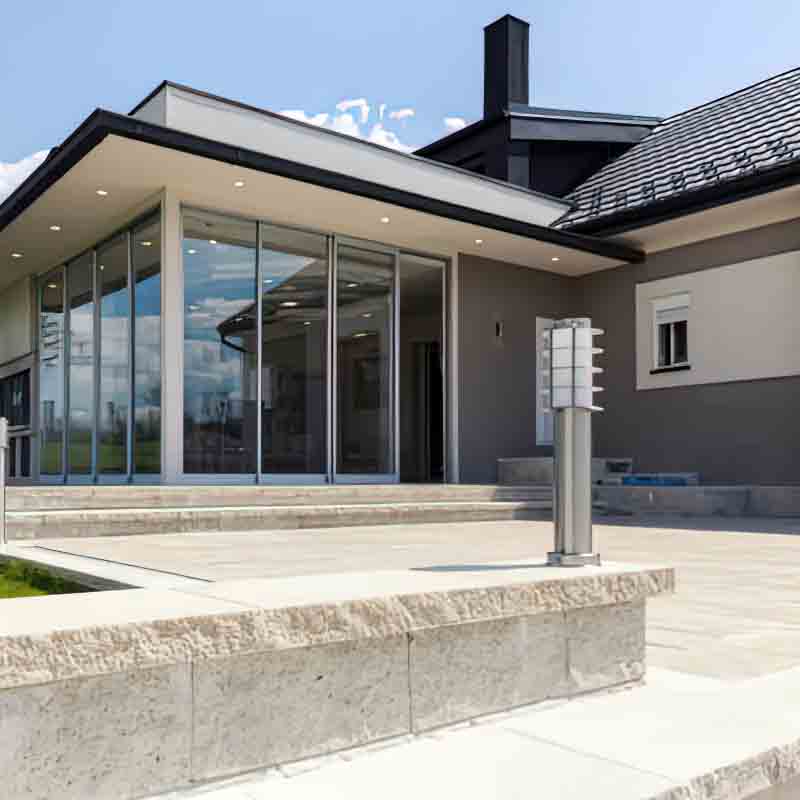
Introduction
Importance of aluminum alloy windows in modern architecture
Purpose of the article
What Are Aluminum Alloy Windows
Extrusion process of aluminum profiles
Customizability of aluminum alloy windows
Advantages of Aluminum Alloy Windows
Lightweight yet strong
Excellent corrosion resistance
Design flexibility (custom profiles and color/finish options)
Key Features to Consider When Choosing Aluminum Alloy Windows
Aluminum profile quality (material grade and extrusion process)
Thermal performance (thermal break technology and energy efficiency ratings)
Weather sealing (gaskets/seals and air/water tightness)
Different Types of Aluminum Alloy Windows
Casement windows
Sliding windows
Double - hung windows
Fixed windows
Installation and Maintenance of Aluminum Alloy Windows
Professional installation
Maintenance tips
Why Choose Aluinno Aluminum Alloy Windows
Quality of products
Customization services
Quality control
Conclusion
Summary of advantages of aluminum alloy windows
Importance of choosing the right windows and Aluinno as the choice
Introduction
In the modern architecture and construction landscape, aluminum alloy windows have emerged as a highly sought-after choice. Their presence graces a multitude of buildings, from sleek urban high-rises to charming suburban residences. The reasons for their popularity are multi-faceted. Aluminum alloy windows not only enhance the aesthetic appeal of structures but also offer a plethora of functional benefits. In this comprehensive exploration, we will delve into the world of aluminum alloy windows, uncovering what makes them stand out and guiding you to make an informed decision when choosing the best ones for your projects.
What Are Aluminum Alloy Windows
Aluminum alloy windows are fabricated using aluminum profiles that have been meticulously engineered through the extrusion process. This extrusion process involves heating aluminum billets to a malleable state and then forcing them through a precisely designed die. The die imparts the desired cross-sectional shape to the aluminum, creating the basic framework of the window. What sets aluminum alloy windows apart is their remarkable customizability. Manufacturers can tailor the aluminum profiles to meet specific design requirements, whether it's an unconventional shape for a modern architectural masterpiece or a standard size for a more traditional building. This flexibility allows architects and builders to bring their creative visions to life while ensuring the structural integrity and functionality of the windows.
Advantages of Aluminum Alloy Windows
Lightweight yet Strong
One of the most significant advantages of aluminum alloy windows is the unique combination of being lightweight and possessing high strength. Aluminum, as a material, has a relatively low density compared to other metals commonly used in construction. This characteristic makes it effortless to handle during the installation process, reducing the need for heavy machinery and minimizing the risk of damage to the building structure. Despite its light weight, aluminum alloy exhibits remarkable strength. It can withstand substantial loads, such as the pressure exerted by wind, without warping or deforming. This strength-to-weight ratio is particularly crucial in high-rise buildings where the structural integrity of the windows is vital for the safety and comfort of the occupants.
Excellent Corrosion Resistance
Aluminum alloy windows are renowned for their excellent corrosion resistance. Aluminum naturally forms a thin oxide layer on its surface when exposed to air. This oxide layer acts as a protective shield, preventing further corrosion. In various environmental conditions, whether it's the salty air near the coast or the humid climate in tropical regions, aluminum alloy windows maintain their structural integrity and appearance over an extended period. This corrosion resistance not only ensures the longevity of the windows but also reduces maintenance costs significantly. Unlike some other materials that may require frequent painting or treatment to prevent rust and decay, aluminum alloy windows can retain their functionality and aesthetic appeal with minimal upkeep.
Design Flexibility
Custom Aluminum Profiles
The ability to create custom aluminum profiles is a game-changer in the world of window design. Architects and designers often strive to achieve unique and innovative designs that set their projects apart. Custom aluminum profiles enable them to realize these aspirations. For instance, in a contemporary art museum, the windows might be designed with irregular shapes to complement the building's avant-garde architecture. These custom profiles can be manufactured with precision to fit specific dimensions and angles, ensuring a seamless integration with the overall design concept. This level of customization is not easily achievable with other materials, giving aluminum alloy windows a distinct edge in the design realm.
Diverse Color and Finish Options
Aluminum alloy windows offer a vast array of color and finish options to suit different aesthetic preferences and project requirements. Through advanced surface treatment techniques such as anodizing and powder coating, the appearance of the aluminum can be transformed. Anodizing not only enhances the corrosion resistance of the aluminum but also allows for a wide range of colors to be incorporated. From sleek metallic hues to vibrant custom colors, anodized aluminum alloy windows can add a touch of elegance or make a bold design statement. Powder coating, on the other hand, provides a durable and smooth finish that is available in an extensive color palette. This finish is highly resistant to scratches, fading, and weathering, making it ideal for both indoor and outdoor applications. Whether it's a minimalist modern home or a historic building restoration project, there is a color and finish option for every design vision.
Key Features to Consider When Choosing Aluminum Alloy Windows
Aluminum Profile Quality
Material Grade
The material grade of the aluminum used in the window profiles plays a pivotal role in determining the overall quality and performance of the windows. Higher-grade aluminum alloys typically contain specific alloying elements in carefully controlled proportions. These elements enhance the mechanical properties of the aluminum, such as its strength, hardness, and ductility. For example, alloys with increased amounts of magnesium and silicon often exhibit improved strength and better resistance to stress corrosion cracking. When selecting aluminum alloy windows, it is essential to choose profiles made from high-quality grades of aluminum to ensure long-term durability and reliability.
Extrusion Process
The extrusion process is a critical factor in the quality of aluminum profiles. A well-executed extrusion process ensures that the aluminum is uniformly shaped and free from defects such as cracks, voids, or inconsistent wall thickness. Advanced extrusion technologies allow for precise control of the extrusion parameters, resulting in profiles with high dimensional accuracy. This precision is crucial for the proper assembly and operation of the windows. Windows made from accurately extruded profiles fit together snugly, reducing air and water leakage and enhancing the overall energy efficiency of the building. Additionally, a smooth extrusion process helps maintain the integrity of the aluminum's microstructure, contributing to its strength and corrosion resistance.
Thermal Performance
Thermal Break Technology
Thermal break technology is a key feature in modern aluminum alloy windows designed to improve their thermal insulation properties. In traditional aluminum windows, heat can easily transfer through the metal frame, leading to significant energy losses. Thermal break technology involves inserting an insulating material, usually a low-conductivity polymer, between the inner and outer parts of the aluminum frame. This interrupts the thermal path, reducing heat transfer and improving the window's overall thermal resistance. By minimizing heat transfer, thermal break technology helps maintain a more stable indoor temperature, reducing the need for excessive heating or cooling. This, in turn, leads to lower energy consumption and cost savings for the building owner.
Energy Efficiency Ratings
Energy efficiency ratings are an important metric when evaluating aluminum alloy windows. These ratings, such as the U-factor and the Solar Heat Gain Coefficient (SHGC), provide valuable information about the window's ability to insulate against heat transfer and control solar heat gain. A lower U-factor indicates better insulation performance, meaning the window is more effective at preventing heat from escaping in the winter and entering in the summer. The SHGC measures the amount of solar heat that passes through the window. Windows with a lower SHGC are better at reducing the amount of heat gain from the sun, helping to keep the indoor space cooler. When choosing aluminum alloy windows, it is advisable to select those with high energy efficiency ratings to maximize the energy savings and comfort of the building.
Weather Sealing
Gaskets and Seals
Proper weather sealing is essential for aluminum alloy windows to perform well in various weather conditions. High-quality gaskets and seals are used to create a tight barrier between the window frame and the sash, preventing air and water infiltration. These gaskets are typically made from materials like EPDM (ethylene propylene diene monomer) or silicone, which offer excellent flexibility, durability, and resistance to weathering. They ensure that the window remains airtight and watertight, keeping the indoor environment comfortable and protected from the elements. In addition to preventing drafts and water leaks, effective weather sealing also helps to reduce noise transmission from the outside, enhancing the acoustic comfort of the building.
Air and Water Tightness
The air and water tightness of aluminum alloy windows are critical factors in maintaining the integrity of the building envelope. Windows with good air tightness prevent the infiltration of outside air, reducing heat loss in the winter and heat gain in the summer. This helps to improve the energy efficiency of the building and maintain a consistent indoor temperature. Water tightness, on the other hand, ensures that rainwater and moisture are kept out of the building. Properly designed and installed windows with effective drainage systems can withstand heavy rain and prevent water from seeping into the walls or interior of the building. This protects the structure from water damage and mold growth, ensuring the longevity of the building.
Different Types of Aluminum Alloy Windows
Casement Windows
Casement windows are a popular choice due to their unique design and functionality. They are hinged on one side and open outward like a door. This design allows for excellent ventilation as the entire sash swings open, providing maximum air flow. Casement windows also offer a tight seal when closed, thanks to the compression of the gaskets around the frame. This makes them highly energy-efficient and effective at keeping out drafts and noise. They are often used in areas where ventilation is a priority, such as kitchens and bathrooms. Additionally, their sleek and modern appearance makes them a suitable option for contemporary architectural designs.
Sliding Windows
Sliding windows operate by sliding the sash horizontally along a track. They are known for their space-saving design as they do not require any additional clearance for opening. This makes them ideal for areas with limited space, such as small apartments or rooms with obstructions near the window. Sliding windows are also relatively easy to operate and maintain. However, their sealing performance may not be as good as casement windows in some cases. To improve their energy efficiency, modern sliding windows often incorporate advanced sealing technologies and thermal break features. They are commonly used in residential and commercial buildings where a simple and practical window solution is needed.
Double - Hung Windows
Double-hung windows consist of two sashes that can be moved vertically within the frame. This design allows for flexible ventilation options as both the top and bottom sashes can be opened to different extents. They are easy to clean as the sashes can be tilted inward, providing access to the exterior surface of the glass. Double-hung windows have a classic and traditional appearance that suits many architectural styles. With the addition of modern energy-efficient features such as thermal breaks and improved sealing, they can also offer good performance in terms of energy conservation and weather resistance. They are widely used in both new construction and renovation projects.
Fixed Windows
Fixed windows are designed to provide maximum light transmission and unobstructed views. As the name suggests, they do not open and are typically used in areas where ventilation is not required, such as large picture windows in living rooms or display areas. Fixed windows are highly energy-efficient as they have no moving parts that could potentially cause air leakage. They are also structurally stable and can be customized in various shapes and sizes to fit different architectural designs. Their simplicity and elegance make them a popular choice for enhancing the aesthetic appeal of a building.
Installation and Maintenance of Aluminum Alloy Windows
Professional Installation
Professional installation is of utmost importance when it comes to aluminum alloy windows. Incorrect installation can lead to a host of problems, including air and water leakage, poor energy efficiency, and even structural damage to the building. Professional installers have the expertise and experience to ensure that the windows are properly fitted and sealed. They follow industry best practices and use the right tools and techniques to install the windows accurately. During installation, they carefully measure and level the window openings, ensuring a perfect fit. They also apply the appropriate sealants and gaskets to create a tight and durable seal. By investing in professional installation, you can ensure that your aluminum alloy windows perform at their best and provide long-term satisfaction.
Maintenance Tips
To keep aluminum alloy windows in optimal condition, regular maintenance is required. Cleaning the windows regularly with a mild detergent and a soft cloth or sponge can remove dirt, dust, and grime, maintaining their appearance. Avoid using abrasive cleaners or tools that could scratch the surface. Inspecting the gaskets and seals periodically for signs of wear or damage is also essential. If any issues are found, they should be replaced promptly to maintain the window's weather-tightness. Lubricating the moving parts, such as hinges and tracks, with a silicone-based lubricant can ensure smooth operation. Additionally, checking the window hardware, such as locks and handles, for proper functioning and tightening any loose screws can enhance the security and usability of the windows.
Why Choose Aluinno Aluminum Alloy Windows
At Aluinno, we are dedicated to providing the highest quality aluminum alloy windows on the market. Our products are manufactured using state-of-the-art technology and the finest materials. We offer a wide range of custom aluminum profiles to meet the diverse design needs of our customers. Our team of experienced engineers and designers work closely with clients to create unique and innovative window solutions. With a focus on quality control, we ensure that each window that leaves our factory meets the strictest industry standards. Whether you are building a new home, renovating an existing property, or working on a commercial project, Aluinno aluminum alloy windows are the ideal choice for durability, energy efficiency, and design flexibility.
Conclusion
In conclusion, aluminum alloy windows offer a multitude of advantages that make them a top choice for modern construction. Their lightweight yet strong nature, excellent corrosion resistance, and design flexibility set them apart from other window materials. When choosing aluminum alloy windows, it is crucial to consider factors such as aluminum profile quality, thermal performance, and weather sealing. Understanding the different types of aluminum alloy windows available, including casement, sliding, double-hung, and fixed windows, allows you to select the most suitable option for your specific needs. With proper installation and maintenance, aluminum alloy windows can provide years of reliable service and enhance the beauty and functionality of any building. When it comes to quality and innovation, Aluinno aluminum alloy windows are the trusted partner for your window needs.


 En
En



 Location:
Location:
